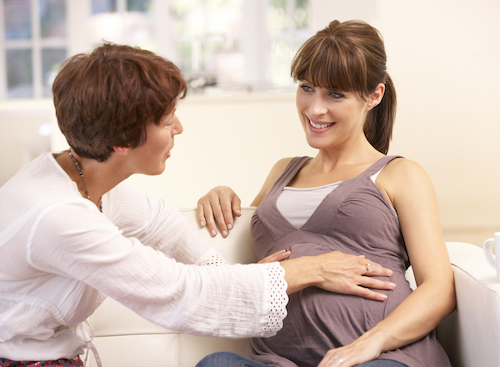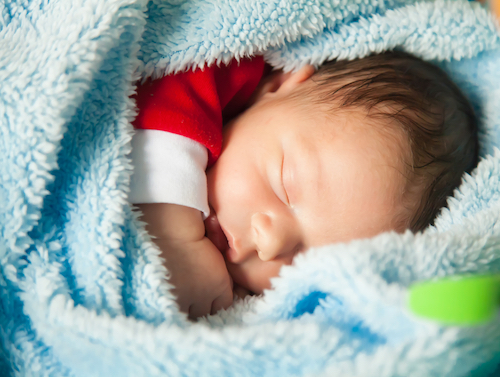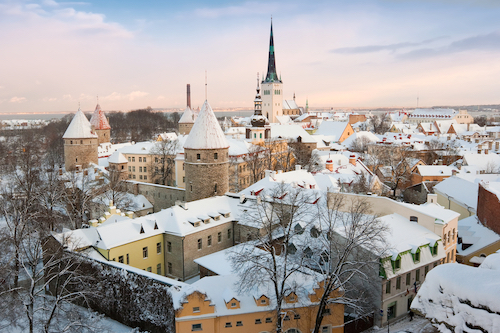If you are an expat in Estonia and expecting a baby, you can expect substantial support from the public healthcare system, the Haigekassa (also known as the Estonian Health Insurance Fund/EHIF), whether or not you are registered with it.Uninsured mums are also covered under the national scheme, although you may also choose to opt for private health insurance for extra peace of mind during your pregnancy.
How to decide on a birth plan
A birth plan is a list of what you would like to have happen in labour and beyond, written so that your doctor know what your wishes and expectations might be. Examples of things to think about include:
• where do you want to give birth?
• who do you want to have with you (e.g. your partner)?
• what kind of birth do you want (e.g. vaginal birth or a Caesarian)
• do you need any birthing aids?
• do you want pain relief, and if so, what kind?
• what kind of birthing environment would you prefer?
The rate of Caesarean sections has been increasing in Estonia in recent years, so discuss this with your midwife or doctor beforehand. If you don’t want a C-section unless strictly medically necessary, it’s advisable to make this known before you go into labour.
Estonian maternity care
If you are the legally married wife of someone with national health insurance, you will be covered under their policy as long as you have also registered with EHIF. If you are employed or self-employed, and making national health contributions, you will have your own health insurance policy. However, you will also be covered even if you are uninsured if you are pregnant, or if you are the parents of children between the ages of 0-3.

If you don’t have health insurance, and would prefer to be treated in the state system, you will need to submit an application to EHIF and send in a document issued by a doctor or midwife that proves your pregnancy. This will give you a form of temporary insurance which will end three months after your child is born. You will then be covered by national insurance until the child reaches the age of three. Your child will be covered under the national scheme until the age of 19.
If you become pregnant, you will need to contact your GP before the 12th week of your pregnancy. You don’t need to contact EHIF directly. Your doctor will make appointments for blood tests, check-ups and ultrasounds.
You will be entitled to two ultrasounds, at 12-13 weeks and 19-21 weeks respectively, with a third if any problems are suspected. If you want additional scans, however, you will need to pay for them. Some maternity care institutions, such as the Women’s Clinic, run pre-natal classes in Estonian and Russian, but you might run into difficulties finding classes in English.
To ensure that you have the midwife of your choice at the birth, you may need to pay. The Women’s Clinic, among others, can arrange a private midwife to attend you and the cost is a flat rate of €380, regardless of how long you are in labour, or whether you give birth vaginally or via a C-section. The service starts when you meet your private midwife for the first consultation before delivery, lasts throughout the delivery and ends two hours after birth. You will need to pay when you leave hospital.

The average stay in hospital after delivery is three days. You may be able to access a family room, but there will be an additional charge, around €40. You might not be able to book it beforehand: check with the clinic. You will also need to bring toiletries and a towel, but most maternity clinics will provide baby clothes, nappies, and baby care items. You will also need to confirm with the hospital beforehand whether your partner is allowed to attend the birth.
You can give birth in either the public or the private sector, depending on your insurance and whether you are prepared to make an out-of-pocket payment. One quarter of all children in Estonia are born in the East-Central Hospital Women’s Clinic in Tallinn. This is the oldest maternity hospital in the country and the only one in Estonia to be honored with a UNICEF Baby-Friendly Hospital title.
Home births were only legalized in the country in 2014, so if you want to choose this option, discuss it with your midwife or doctor. Home birth comprises a very small percentage of all births in Estonia and some medical personnel remain opposed to it. In addition, home births will not be covered by the Haigekassa, so you will need to pay for the services of any medical personnel who accompany you during the birth. Some private maternity clinics have facilities for water births.

You will need to register the birth of your child within the first month, either to the Vital Statistics Office in Tallinn or via the e-registration service.
You may be entitled to the following benefits:
• pregnancy and maternity leave (rasedus – ja sünnituspuhkus)
• childbirth allowance (sünnitoetus)
• parental leave (lapsehoolduspuhkus)
• parental benefit (vanemahüvitis)
As a working mother, you are entitled to 140 days of maternity leave, which you can begin 70 days before your due date. You will need a doctor’s certificate with the start date. Your partner is allowed paternity leave for 10 days in the two months before the estimated time of the birth, and also in the two months after the baby has arrived.
You can apply for paid parental leave for 435 days – generous compared to some other European countries. The amount will depend on your national insurance contributions. If you did not have an income for the year before the birth of your child, and therefore were not paying into the system, the amount of your parental benefit will be equal to the minimum monthly wage.
Will my baby be an Estonian citizen?
Children born in Estonia will only be eligible for Estonian citizenship if at least one parent holds Estonian citizenship at the time of the birth.
Would you like to share your experience of life abroad with other readers? Answer the questions here to be featured in an interview!

